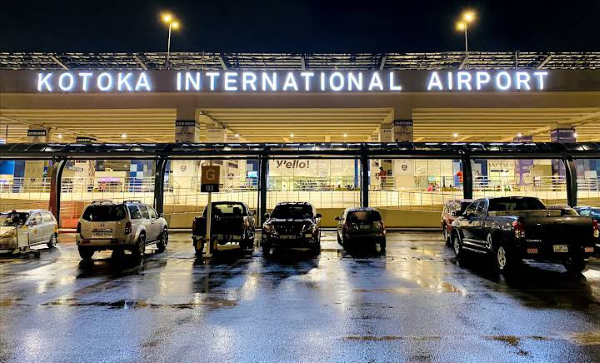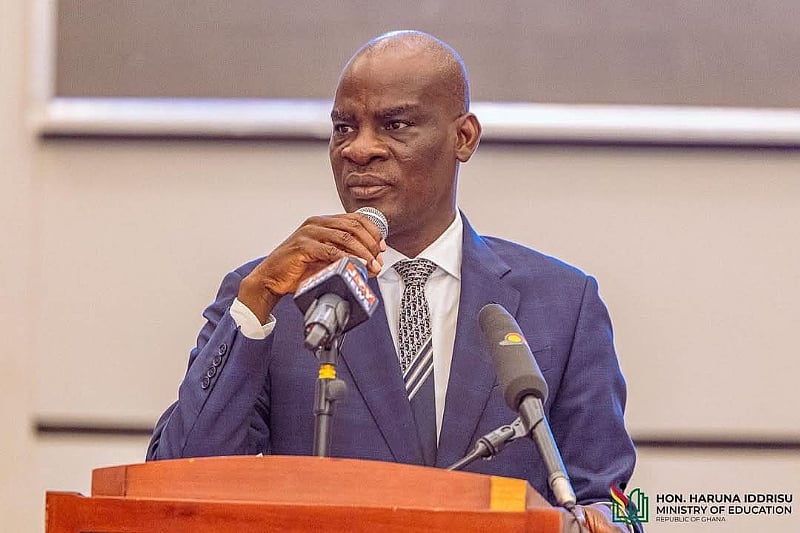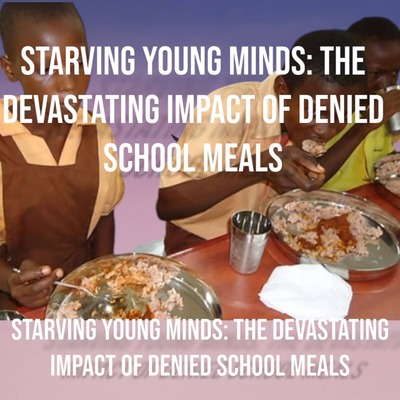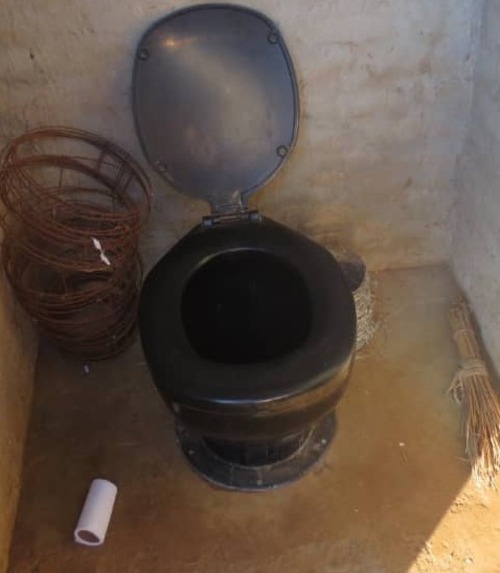⇒DOCUMENTARY BY NGAMEGBULAM CHIDOZIE STEPHEN⇐ At Kalbeo Tindonsoblgo in the Upper East Region, a small and impoverished community where most parents are poor farmers struggling to make ends meet, a quiet crisis is unfolding. The government’s School Feeding Programme, which is meant to provide a reliable source of nourishment to school pupils, has faltered, leaving the children at Kalbeo Tindonsoblgo Primary School hungry and uncertain. For these children, the meals they receive at school are not just food; they are a critical source of energy that helps them concentrate on their studies. Without it, their ability to focus and thrive in school is compromised. The 2024 Global Hunger Index paints a gloomy picture of Ghana, ranking it 66th out of 127 countries. This statistic is painfully real for communities like Kalbeo Tindonsoblgo, where hunger is an ever-present concern. Instead of looking forward to lunchtime with anticipation and relief, the children are met with disappointment, a constant reminder of the daily struggles their families face. Once hopeful and eager, their faces now reflect fatigue, their energy drained by the absence of regular meals. Yet, even in their weariness, their resilience remains strong. Despite these challenges, there is hope for change. The community’s strength and determination cannot be overlooked. Through the collective efforts of parents, educators, and well-wishers, the School Feeding Programme can be restored, providing more than just food. It will restore the children’s confidence, reminding them that they are cared for, valued, and worthy of every opportunity. A reliable meal will do more than fill their stomachs; it will bolster their sense of self-worth and enable them to focus on their education, knowing that a brighter future is within their grasp. Addressing this issue is not just about providing a meal, it’s about nurturing the dreams and aspirations of an entire generation. Stella and Azumah, the caterers responsible for providing meals for school pupils at Kalbeo Tindonsoblgo Primary School, had neglected their duties, leaving the children to face the harsh reality of hunger. Throughout the previous term, the pupils were served food only on a handful of days, forcing many to go without proper meals. As the school year drew to a close in July 2024, the consequences of this negligence became painfully evident. The days turned into weeks, and children who once brimmed with energy were now lethargic and distracted, struggling to focus on their studies. Their health suffered greatly, and the vibrant laughter that used to fill the schoolyard was replaced by quiet resignation. Conversations among parents revealed a shared sense of frustration; while they appreciated the government’s efforts to improve nutrition for their children, they could only lament the failure of the program at Kalbeo Tindonsoblgo School (KTS). Some parents spoke earnestly about their hopes for the initiative, believing it could uplift their children’s futures. However, witnessing the deterioration of their wards due to inadequate nutrition was heartbreaking. The community rallied together, calling for immediate action to restore the feeding program to its former glory. With the future of these young learners hanging in the balance, the urgent need to address the situation became crystal clear. It was imperative that the necessary steps be taken to ensure children at Kalbeo Tindonsoblgo Primary School received the fundamental nourishment they needed to not only survive but to truly thrive in their educational journey. The community deserved better; the next generation’s potential depended on it. In the heart of Ghana, amidst the vibrant landscapes and bustling towns, lies a small and struggling community that tells a poignant story of resilience and desperation. The national school feeding program in Ghana was designed to be a beacon of hope. Its goals were noble: to reduce hunger and malnutrition, increase school enrollment, attendance, and retention, and boost domestic food production. Ultimately, it aimed to break the chains of poverty and enhance food security for the nation’s future. But at Kalbeo Tindonsoblgo Primary School, those promises felt like a distant dream. The reality was stark and disheartening. The children, eager to learn and play, faced the harsh silence of empty bellies. The purpose of the feeding program had been betrayed by these caterers who had, time and again, failed to fulfill their commitments. They neglected their duties, leaving the students with little more than the hope of a meal. Last term, the children were fed on only a handful of days, with months stretching between their meager portions, until the school closed for vacation in July 2024. The impact was devastating. They struggled to focus in class, their minds foggy with hunger. As days turned into weeks, attendance became a struggle. Children who should have been eager to gather around their teachers were instead forced to choose between learning and the gnawing pain of an empty stomach. Retention rates plummeted, and with that, the community faced an unsettling reality where poverty continued to grip them tightly. The cries of the Kalbeo Tindonsoblgo Primary School community echoed with urgency. Parents and teachers alike knew that something had to change. They longed for intervention and accountability; they needed the authorities to step in and hold the negligent caterers responsible for their failures. Swift action was necessary to ensure meals were delivered promptly, safeguarding not just the health of the children but their right to an education. As I delved deeper into the investigation surrounding the catering services at Kalbeo Tindonsoblgo Primary School, I found myself seated across from the headmistress in her modest office. Her weary eyes held a mix of frustration and concern, a reflection of the troubling situation unfolding at the school. “Tell me about the catering services provided by the two vendors,” I prompted, hoping to glean more about the persistent issues. Madam Wayo Ajara, the headmistress, paused, carefully weighing her response. “Well, to put it bluntly, the pupils haven’t been fed properly, even on the few days the caterers did show up. Every time I voice my complaints, the caterers will just become confrontational.” Her voice carried a sense of urgency
Improvements in Household Latrines in Bolgatanga Municipality
The Bolgatanga Municipal Environmental Officer, Mr. Evans M, has revealed that the introduction of Sama Sama and the new Bio digester system has significantly improved household latrines in the municipality. Apexnewsgh reports The Bio digester system, in particular, has made it easier for households to install toilet facilities without the need for a large proportion of land to construct septic tanks. Mr. Evans cited the success story of Kotokoli Zongo, where a prosecution exercise led to a change of mindset among residents. Prior to the exercise, only 15 out of 59 households had toilet facilities. However, after the prosecution, the number increased to 42 households with toilet facilities. Similarly, in Tanzui, new buildings are being constructed with toilet facilities, and some households have even installed VIP latrines, which are still in use. While these success stories are encouraging, the latest Ghana Statistical Service report reveals that 17,059 households in the Bolgatanga Municipality still lack access to toilet facilities. Despite this challenge, the improvements in household latrines demonstrate the positive impact of initiatives like Sama Sama and the Bio digester system. He said effort will continue to address the remaining gaps and ensure that all households have access to safe and dignified sanitation facilities. The progress made in Bolgatanga Municipality serves as a model for other areas to adopt innovative solutions to improve sanitation and hygiene. As the municipality continues to work towards achieving universal access to toilet facilities, the successes in Kotokoli Zongo and Tanzui offer hope and motivation for a cleaner, healthier, and more sustainable future. Source: Apexnewsgh.com Thanks for reading from Apexnewsgh as a news publishing website from Ghana. We encourage you to freely share this story via social media platform and follow us on; Facebook on APEXNEWSGH-Tv or Please contact Apexnewsgh.com on email apexnewsgh@gmail.com for your credible news publications. Contact: 0248250270/0256336062
Upper East and Upper West Assemblies to appear before PAC
All Assemblies in the Upper East and Upper West regions cited in the 2018 Auditor-General’s Report have officially been invited to the Public Accounts Committee (PAC) to respond to various violations. Apexnewsgh.com report During the start of the second day of the PAC public hearing which took place in Tamale, the Northern Regional Capital, these Assemblies were asked to clarify why they misused certain funds allocated for some specific projects as captured in the report. Members of PAC, are expected to consider the report of the Auditor-General on the Management and Utilization of District Assemblies Common Fund and Other Statutory Funds for the year ended 31 December 2018 and Accounts of District Assemblies (IGF) for the year ended 31st December 2018. Bolgatanga, Nabdam, Jirapa, Kassena Nankana West, Builsa North, Wa Municipal and Nandom, Includes Assemblies that appeared earlier before the committee. Apexnewsgh.com/Ghana Please contact Apexnewsgh.com on email apexnewsgh@gmail.com for your credible news publications. Contact: 05555568093













